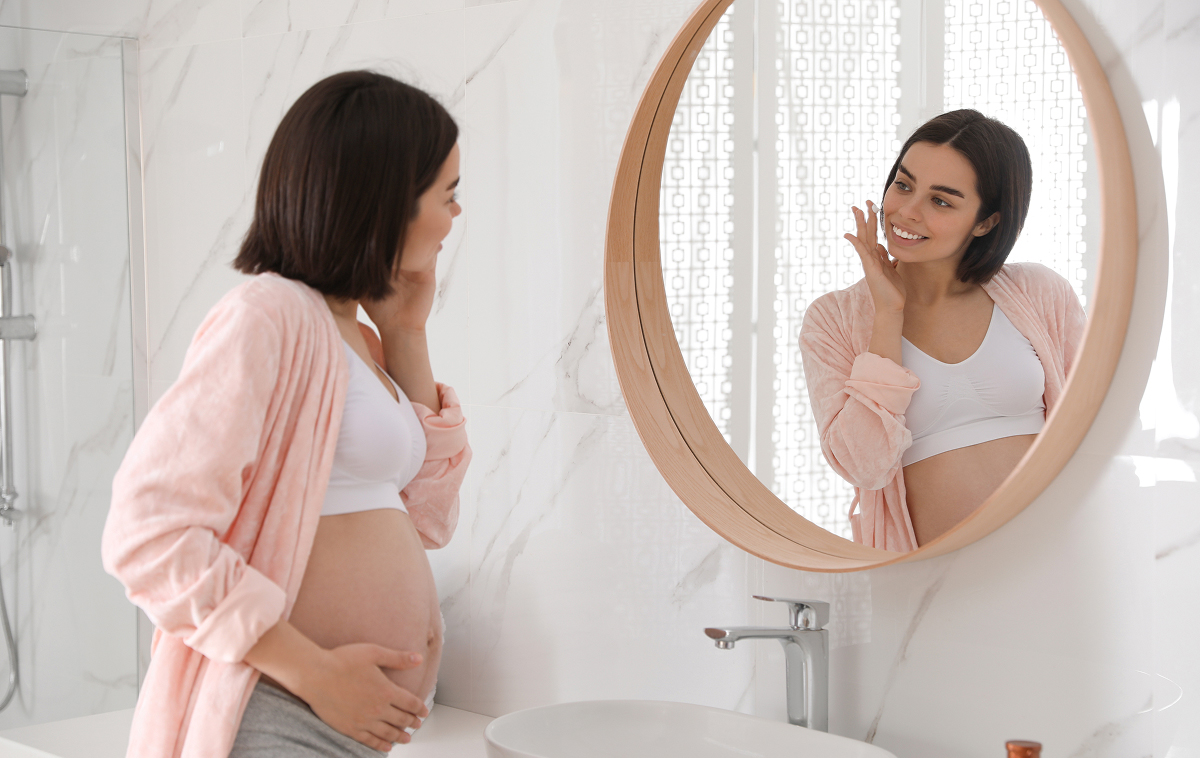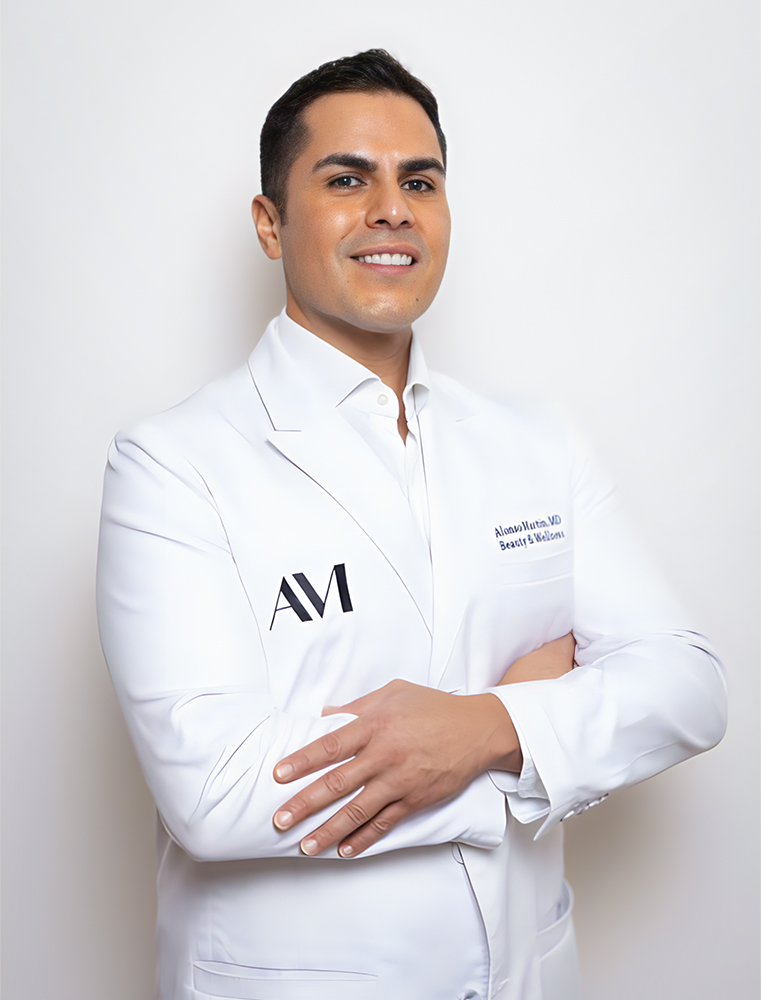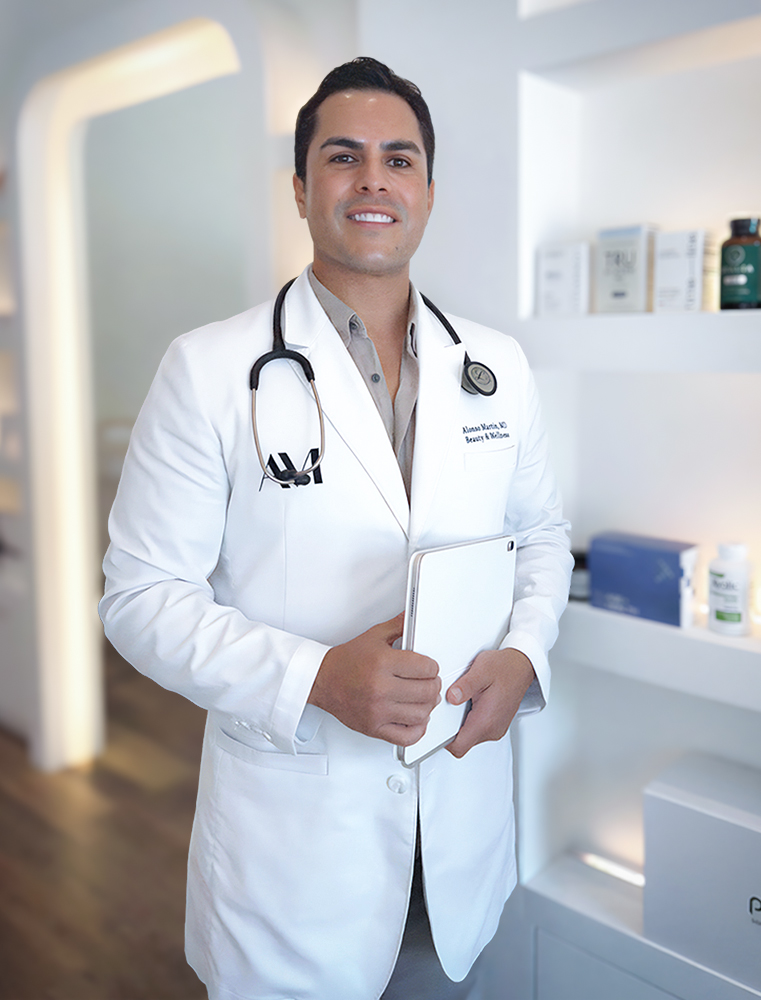Can you do Botox while pregnant? It’s a common question—and one that doesn’t always come with a clear answer. Many women want to maintain their skincare routine and feel their best during pregnancy, but the safety of Botox injections during this time is still uncertain. The short answer is no—Botox isn’t recommended while you’re pregnant because there’s not enough research to confirm it’s safe.
At BODYWELLE in Miami Beach, we know how important it is to feel confident and informed, especially during such a personal time. Our team stays current with medical guidance to help you make safe, thoughtful choices about aesthetic treatments.

Why You Might Be Thinking About Botox During Pregnancy
Pregnancy brings many changes to the body, including to the skin and facial muscles. You may notice new or deepening wrinkles, puffiness, or shifts in facial symmetry due to hormones, lack of sleep, or fluid retention. It’s completely normal to want to maintain your appearance and feel like yourself throughout pregnancy.
Women who are used to regular Botox injections may wonder if they should continue during pregnancy. These treatments are often part of a consistent cosmetic routine to smooth forehead lines, crow’s feet, or frown lines. In some cases, Botox is used for medical conditions like migraines or cervical dystonia, which can persist or even worsen during pregnancy.
With so many factors at play, it’s understandable to explore your options. But the most important consideration is your health and the health of your baby.

What Doctors Really Say About Getting Botox While Pregnant
There is currently no strong evidence showing that Botox injections are safe for pregnant women. While botulinum toxin is used in small doses for cosmetic purposes, it’s still a neurotoxin. Most healthcare providers and dermatologists recommend avoiding Botox treatment during pregnancy as a precaution.
Because ethical concerns prevent clinical trials on pregnant patients, most of the available data comes from case reports or animal studies. While some studies involving pregnant animals haven’t shown serious complications, they still don’t provide conclusive proof of safety for human pregnancy.
The American Academy of Facial Plastic and Reconstructive Surgery (AAFPRS) and the Cleveland Clinic both emphasize the importance of avoiding elective cosmetic procedures during pregnancy. The general rule: if it’s not medically necessary, it’s better to wait.
Know the Risks and Complications of Botox During Pregnancy
Even though Botox is widely considered safe for the general population, the potential risks to a developing fetus are largely unknown. Here are a few reasons why Botox injections may pose a concern during pregnancy:
- Lack of research: There are no large-scale human studies showing that Botox is safe for pregnant women.
- Potential for toxin spread: Although rare, Botox can sometimes spread beyond the injection site, which raises concern for fetal exposure.
- Unknown effects on fetal development: It’s unclear how botulinum toxin could impact the placenta, fetus, or early brain and muscle development.
- Risk of complications: Any unnecessary drug or procedure during pregnancy has the potential to lead to unexpected side effects.
Because the data is incomplete, most medical professionals err on the side of caution and recommend postponing any Botox sessions until after birth.
Here’s Why Experts Often Say to Wait on Botox
Pregnancy is a delicate time for both mother and baby. The placenta acts as a filter, but it doesn’t block everything. Even small doses of a drug, especially one that acts on the nervous system like botulinum toxin, can raise concerns.
While the actual risk of complications might be low, the potential consequences—such as birth defects or developmental problems—are serious enough to warrant caution. No aesthetic goal is worth risking your baby’s health, especially when there are safe alternatives.
Doctors also note that your body processes medications differently during pregnancy. This includes changes in blood volume, metabolism, and immune response, all of which could impact how your body reacts to injections.
The FDA’s Stance on Botox During Pregnancy
The U.S. Food and Drug Administration (FDA) has placed Botox in Category C for pregnancy. This means that animal reproduction studies have shown an adverse effect on the fetus, and there are no adequate and well-controlled studies in humans.
In short, Botox should only be used during pregnancy if the potential benefits justify the potential risk to the fetus. For medical conditions like severe migraines or dystonia, a healthcare provider may consider the risks and benefits. But for cosmetic treatments, the FDA advises against use during pregnancy.
Safe Alternatives to Care for Your Skin During Pregnancy
Even without Botox, there are plenty of ways to keep your skin glowing and healthy while you’re pregnant. Hormonal changes can cause new skin issues, but gentle care and smart skincare choices can help you feel confident in your skin.
Here are some safe alternatives to Botox during pregnancy:
- Hydration-focused facials: These boost circulation and give your skin a fresh, radiant look without any risk to your baby.
- Pregnancy-safe skincare products: Look for products free from retinoids, salicylic acid, and benzoyl peroxide. Ingredients like hyaluronic acid and vitamin C are generally safe and effective.
- Gua Sha or facial massage: These gentle treatments improve circulation and can reduce puffiness and tension in the face.
- Microneedling alternatives: Some non-invasive treatments like dermaplaning (performed by a professional) may be safe, but always ask your provider.
- Regular sunscreen use: Sun protection is essential, especially if you’re prone to melasma during pregnancy.

Start Your Journey to Success, Don’t Wait Any Longer!
Join our satisfied patients who’ve experienced safe, effective treatments.

When You Can Safely Get Back to Botox Injections After Baby
Once your baby has arrived, you may be eager to return to your Botox routine. The good news is that Botox is generally considered safe once you are no longer pregnant. However, the timing still depends on a few factors.
If you had Botox regularly before pregnancy, your muscles may have regained movement, and some of your previous lines may have returned. When you feel ready, you can book a consultation with your provider to assess your current needs.
It’s a good idea to wait until your body has stabilized after delivery—usually a few weeks postpartum—before resuming Botox injections.
What to Know if You’re Breastfeeding
While Botox is not absorbed into the bloodstream in large amounts and is unlikely to pass into breast milk, the data on Botox use during breastfeeding is also limited. That’s why many dermatologists and plastic surgeons recommend waiting until breastfeeding has ended or at least consulting with your healthcare provider.
Here are some considerations:
- The botulinum toxin molecule is large and not likely to transfer through breast milk.
- There are no major studies showing harm to breastfed babies after maternal Botox use.
- Out of caution, some providers advise delaying Botox until breastfeeding is complete.
Ultimately, it’s a personal choice that should be made with expert medical guidance.
How Soon You Can Resume Treatments Postpartum
Most women can safely resume Botox treatments after they’re no longer pregnant or breastfeeding, depending on their specific situation. If you’re planning to continue breastfeeding for an extended period, your provider can help you weigh the minimal risks versus the aesthetic benefits.
The exact timing varies. Some women wait six weeks postpartum. Others wait until they’re completely done nursing. Either way, a consultation is the best first step. Dr. Martin can help assess your goals and guide you toward the safest timeline.
Choose a Trusted Miami Beach Botox Specialist Who Puts Your Safety First
Pregnancy is a time filled with big changes, excitement, and lots of decisions. At BODYWELLE in Miami Beach, Dr. Alonso Martin believes in supporting women with accurate information, personalized care, and total transparency. Whether you’re newly pregnant, actively breastfeeding, or navigating postpartum changes, you deserve expert advice tailored to your unique needs.
Dr. Martin is a Harvard-trained physician known for his meticulous approach, medical integrity, and commitment to safety. At BODYWELLE, you’ll never feel rushed or pressured—just informed and supported.
If you’re wondering, “Can you do Botox while pregnant?” we encourage you to book a consultation instead of guessing. Let our team walk you through your options, explain safe alternatives, and help you plan for the future. Schedule your appointment at BODYWELLE today to feel confident about every step of your aesthetic journey—before, during, and after pregnancy.

Frequently Asked Questions About Botox and Pregnancy
Can Botox help with hooded eyes or eyelids?
Yes, Botox can help improve the appearance of hooded eyes by lifting the outer brow. When strategically placed, Botox relaxes the muscles that pull the brow down, allowing the upper eyelids to look more open and refreshed. However, results depend on individual anatomy, and in some cases, a surgical brow lift may be more appropriate.
What if I had Botox before knowing I was pregnant?
If you had Botox before learning you were pregnant, don’t panic. The small doses used in cosmetic treatments are unlikely to pose a major risk, but you should avoid further injections during your pregnancy and discuss any concerns with your doctor.
Are there any medical exceptions for using Botox while pregnant?
In rare cases, Botox may be considered for medical conditions such as severe migraines or cervical dystonia. However, even in these cases, the decision should be made carefully with your provider and weighed against potential risks to your pregnancy.
Will skipping Botox for nine months affect my long-term results?
Taking a break from Botox during pregnancy may cause previously treated lines to return, but you can resume treatment postpartum. With consistent care, most patients find that their results bounce back quickly.
How do I know when it’s safe to resume Botox after giving birth?
Every woman is different, and the right time to resume Botox depends on factors like whether you’re breastfeeding, your recovery progress, and your cosmetic goals. A personalized consultation with a trusted provider like Dr. Martin is the best way to create a safe treatment plan that fits your timeline.
About the Author

Dr. Alonso Martin is a renowned physician at the intersection of science, beauty, and longevity. Beginning his career at UCLA as a neuroscientist studying antioxidants’ effects on longevity, Dr. Martin now leads AM Beauty & Wellness Medspa in Miami, specializing in the latest non-invasive facial and body rejuvenation techniques. His expertise spans cosmetic dermatology, focusing on injectable neuromodulators like Botox, Daxxify, Dysport, and Xeomin, alongside an array of fillers including RHA, Juvederm, and Sculptra, to name a few. He is also adept in natural skin rejuvenation through PRF (Platelet-Rich Fibrin), stimulating collagen production and mitigating signs of aging.
Further enhancing his practice’s offerings, Dr. Martin utilizes Emsculpt NEO technology for muscle growth, tissue lifting, and fat elimination—techniques favored by NFL athletes and celebrities for strength and longevity. He passionately advocates for strengthening the body and optimizing its function as an anti-aging solution, incorporating peptide therapy to support overall wellness.
Dr. Martin trained at the University of California, Irvine Hospital in family medicine, where he treated patients of all ages with obesity, diabetes, thyroid & hormone disorders, high blood pressure, age-related diseases, chronic pain, and autoimmune conditions. With prestigious nominations like Resident of the Year at UCLA, he holds an M.D. from Michigan State University and a B.Sc. in Neuroscience from UCLA. Licensed in both Florida and California, Dr. Martin’s credentials underscore his commitment to enhancing patient well-being through advanced medical practices.
If you have any questions or would like to schedule an appointment, contact BODYWELL today by calling (305) 877-5084.